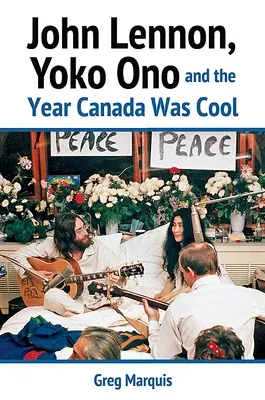John Lennon was the world's biggest rock star in the late Sixties. With
his new wife Yoko Ono, the duo were icons of the peace movement
denouncing the Vietnam War.
In 1969, at the height of their popularity, they headed to Canada.
Canada was already a politically charged place. In 1968, Pierre Elliott
Trudeau rode a wave of popularity dubbed Trudeaumania for its
similarities to the Beatlemania of the era. The sexual revolution,
hippie culture, the New Left and the peace movement were challenging
norms, frightening the authorities and provoking backlash. Quebec
nationalism was putting the power of the English-speaking minority
running the province on the defensive, and threatening the breakup of
the country.
John Lennon and Yoko Ono staged a "bed-in for peace?" at an upscale
downtown Montreal hotel. The couple, aided by the CBC, saw a steady
stream of journalists, musicians and activists arriving for interviews,
political discussions, singing and art-making. The classic "Give Peace A
Chance" was recorded there with the help of local Quebecois musicians.
Three months later they were back in Canada with Eric Clapton and other
friends to play a concert festival in Toronto arranged by local
promoters. American acts like Little Richard, The Doors, Bo Diddley and
Alice Cooper, along with many Canadian pop musicians of the time, played
at the festival.
At year's end, the duo met with Prime Minister Trudeau in Ottawa. By
this time Trudeau was cracking down on dissent, mainly in Quebec, and
falling out of favour with the counterculture crowd.
Recounting the story of these events, historian Greg Marquis offers a
unique portrayal of Canadian society in the late Sixties, recounting how
politicians, activists, police, artists, musicians and businesses across
Canada reacted to John and Yoko's presence and message.

